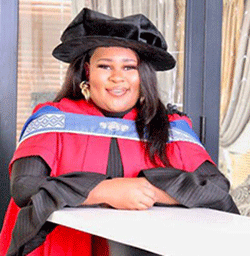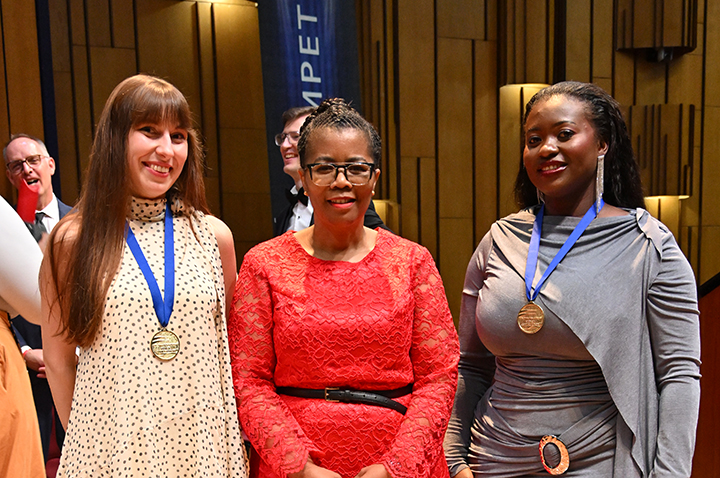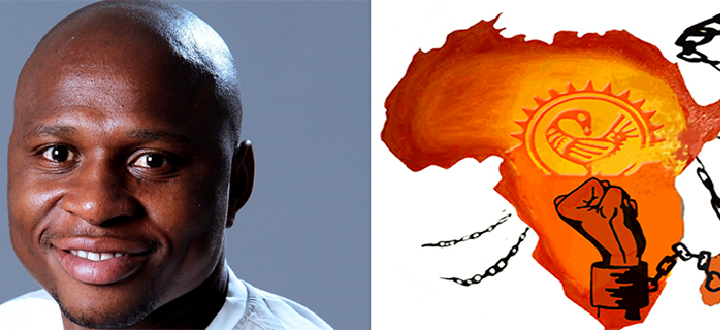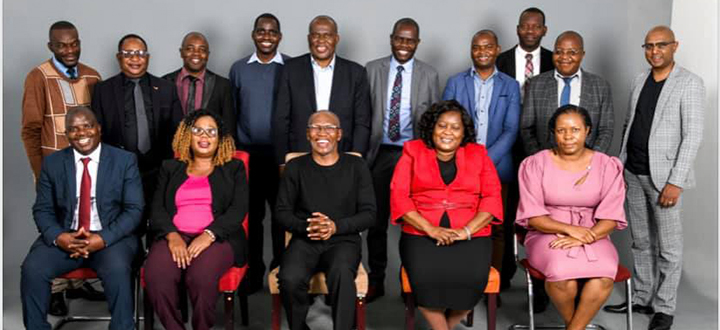
The African college of excellence in the social and human sciences

Dr Mbali Mazibuko obtained her PhD in Women and Gender Studies
You would think that when Nina Simone wrote the song, Young, Gifted and Black, she was dedicating it to Dr Mbali Mazibuko. She is the youngest woman from the Department of Gender and Sexuality Studies (DGSS) in the College of Human Sciences who recently attained her PhD in Women and Gender Studies.
Born and bred in the East Rand of Johannesburg in Springs, Mazibuko says being surrounded by strong black women her whole life inspired her to be a feminist activist. She says she subscribes to feminism. At the very heart of feminism, or at least the feminism she identifies with, is women's freedom of choice and agency. "This means there is no right or wrong way to be a feminist, apart from when your political ideals are harmful and violent," says Mazibuko. She further explains that women must have the power and privilege to decide and imagine the kind of world and lives they wish to lead.
When asked what inspired her to research her title Rebellious Black Femininities: Embodiments of Freedom, Desire and Agency in South African Popular Culture from 1980 to the Present, Mazibuko explains that her understanding of the world inspires her work. "I am also inspired by rebellious women like Brenda Fassie and Lebo Mathosa, who impacted the political and cultural landscape of South Africa in politically oblique ways." She adds: "I wanted to discover how women code practices of agency, desire and freedom in an otherwise heterosexist context such as South Africa by looking into the popular cultural contexts that women like Brenda and Lebo and even Khanyi Mbau operate in," she says.
Mazibuko says she was inspired to see how performative femininities translate into the everyday. She wanted to understand how contemporary rebellious women, like women labelled "Slay Queens", may be understood from a much longer and older genealogy of revolutionary women like Brenda and Lebo. She further explains that she wanted to see what lessons contemporary non-traditional black feminists could learn from historical icons about navigating violent and sexist contexts while still insisting on subversive embodiments of femininity.
Mazibuko hopes that her research impacts women and enables them to embody themselves in ways that are affirmative to themselves. "It is not easy for many of us in academia to take up spaces assertively, show up as our authentic selves, and insist that we be seen," she stresses. She explains that her research is not only about memory work, but is also meant to be inspirational in helping people see the possibilities of actualising and embodying our freedom, agency and desires. At the same time, Mazibuko's work hopes to encourage a spirit of understanding while also planting a seed of nurturing and accepting even that which is different from the traditional or the norm. "Women considered 'stubborn' or 'difficult' or 'too much' of anything may come to terms with the fact that these labels are part of the broader patriarchal structures of respectability politics. However, we do not need to be anything but what we desire – and there are ways of navigating the dangers that come with the audacity of taking up space. I outline these strategies in my work and hope, at the very least, that they are generative of further engagement on black femininities," she says.
Mazibuko also hopes to publish more from her PhD and further engage in academia and social platforms.
She shares words of gratitude to those who held her hand during her PhD journey: "There are so many people to thank. My parents, Mr and Mrs Mazibuko, have been shining stars in my journey. My only living grandmother remains why I do what I do." She adds: My supervisors, Professor Tamara Shefer, Professor Sisa Ngabaza and Professor Desiree Lewi, are the best team to have carried me to completion. My colleagues in the DGSS have been incredibly supportive, and for that, I thank them."
"I would like to single out Professor Itumeleng Mothoagae, the Head of the DGSS, for being so affirming and allowing me space to work through my PhD. Kgothatso Mokgele and Hanzline Davids have also been extremely supportive and helpful, calming me down when things felt overwhelming. Prof Byrne has also held me in ways I probably do not deserve – Thank you! Finally, Prof Azwi has pushed me to completion from the beginning – thank you for those random calls to check my progress. Thank you all," she concludes.
*By Ledile Nnana Jege, College of Human Science
Publish date: 2023/05/16
 Unisa celebrates a project of hope, dignity and student success
Unisa celebrates a project of hope, dignity and student success
 Women vocalists take top honours at Unisa's globally renowned showcase
Women vocalists take top honours at Unisa's globally renowned showcase
 African wealth is dependent on investment in education and development
African wealth is dependent on investment in education and development
 Unisa celebrates matric result success at Correctional Services ceremony
Unisa celebrates matric result success at Correctional Services ceremony
 Unisa ICT Director recognised among acclaimed IT leaders
Unisa ICT Director recognised among acclaimed IT leaders